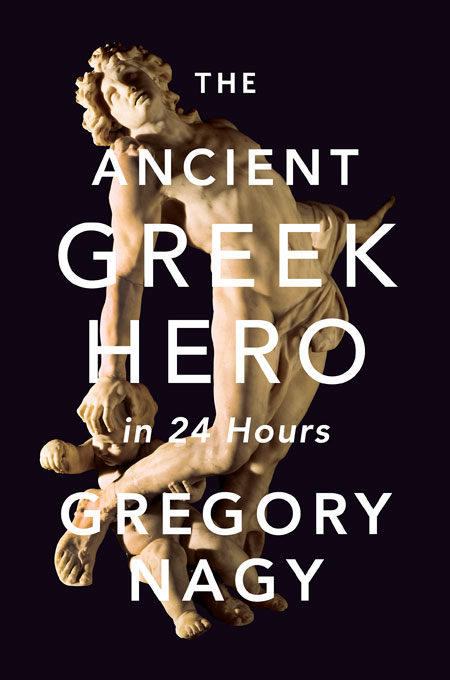 The Ancient Greek Hero in 24 Hours
The Ancient Greek Hero in 24 Hours
Gregory Nagy
Harvard University Press
Available July 2013
The Ancient Greek Hero in 24 Hours explores what it means to be human today by studying what it meant to be a hero in ancient Greek times. Readers will experience, in English translation, some of the most beautiful works of ancient Greek literature and song-making spanning over a thousand years from the the eighth century BCE through the third century CE: the Homeric Iliad and Odyssey; tragedies of Aeschylus, Sophocles, and Euripides; songs of Sappho and Pindar; dialogues of Plato, and On Heroes by Philostratus. Nagy has carefully selected and translated over 250 passages from these works with special attention to the subtleties of the original language. Throughout his analysis, Nagy models techniques for “reading out” of these works in an inductive way. This approach allows readers with little or even no experience in the subject matter to begin seeing this literature as an exquisite, perfected system of communication.
Based on the popular Harvard University course Nagy has taught and refined since the late 70’s, this volume presents the very latest research from a scholar who is equally committed to pursuing good teaching and good research.
This text is also available online through an associated MOOC. Launched on March 13th and accepting new participants through late July, The Ancient Greek Hero is a free, open access course offered through edX (www.edx.org), the online learning initiative founded by Harvard University and the Massachusetts Institute of Technology (MIT). For more information, see the course announcement. Or enroll now!
Watch Nagy’s video introduction for the text and the course.
Gregory Nagy is the Francis Jones Professor of Classical Greek Literature and Professor of Comparative Literature at Harvard University, and is the Director of the Center for Hellenic Studies, Washington, DC. In his publications, he has pioneered an approach to Greek literature that integrates diachronic and synchronic perspectives. His books include The Best of the Achaeans: Concepts of the Hero in Archaic Greek Poetry (Johns Hopkins University Press), which won the Goodwin Award of Merit, American Philological Association, in 1982; also Pindar’s Homer: The Lyric Possession of an Epic Past (Baltimore: Johns Hopkins University Press, 1990), Poetry as Performance: Homer and Beyond (Cambridge: Cambridge University Press, 1996), Homeric Questions (Austin: University of Texas Press, 1996), Homeric Responses (Austin: University of Texas Press, 2003), Homer’s Text and Language (University of Illinois Press 2004), Homer the Classic (Harvard University Press, online 2008, print 2009), and Homer the Preclassic (University of California Press 2010). He co-edited with Stephen A. Mitchell the 40th anniversary second edition of Albert Lord’s The Singer of Tales (Harvard Studies in Comparative Literature vol. 24; Harvard University Press, 2000), co-authoring with Mitchell the new Introduction, pp. vii-xxix.
-
Fellowships
- Fellowships in Hellenic Studies
- Early Career Fellowships
- Summer Fellowships
- CHS-IHR Joint Fellowship
- Current Residential Fellows
- Previous Fellows Previous Fellows – Chronological Lists
